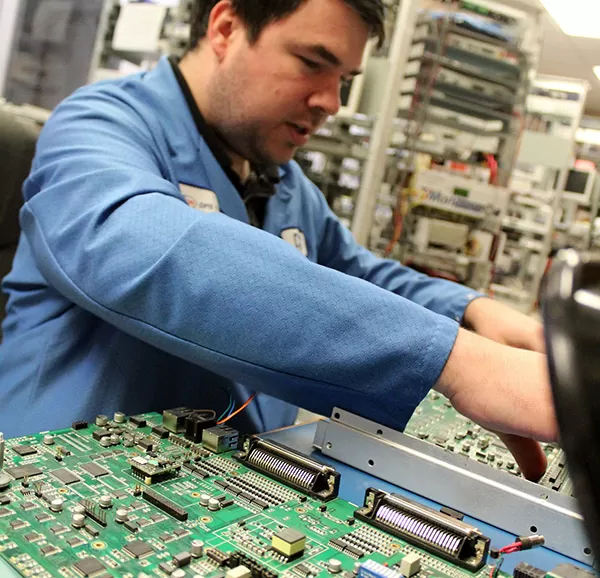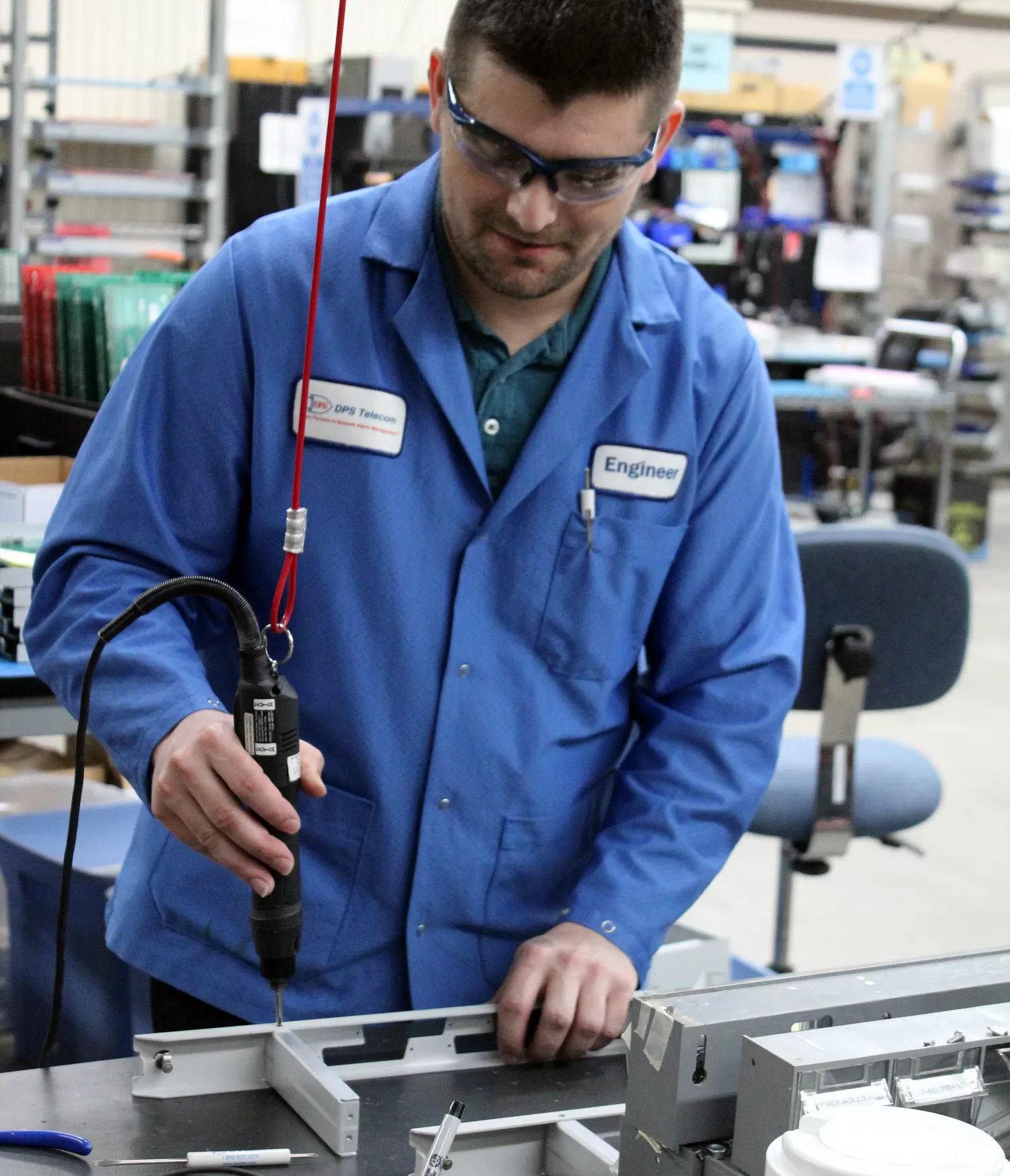Check out our White Paper Series!
A complete library of helpful advice and survival guides for every aspect of system monitoring and control.
1-800-693-0351
Have a specific question? Ask our team of expert engineers and get a specific answer!
Sign up for the next DPS Factory Training!

Whether you're new to our equipment or you've used it for years, DPS factory training is the best way to get more from your monitoring.
Reserve Your Seat TodayAs a customer, I bet there's nothing you hate more than planned obsolescence. If something that could continue working is designed to stop working arbitrarily, you rightly feel cheated.
Yes, you might sometimes get stuck buying this kind of equipment from a dominant industry supplier, but that doesn't make it any less frustrating.
Fortunately, I have some good news. Let me show you the conscious decision I've made at DPS Telecom to make you happy with gear that simply keeps working.

Companies that can't legitimately satisfy your needs sometimes scrounge for cheats and tricks to force you into sales.
With a history of success and a large install base, they'll sometimes use a common (and shortsighted!) trick to build an expiration date into their product.
Engineered obsolescence invades your purchases in many ways:
Although technologically distinct, all of these methods share one common trait: they drain your budget (and your spirit!) in ways that few other techniques can.
Everyone knows that companies exist to make money. But if they helped you solve real problems with ease, they'd find that they could still earn a profit and improve the world at the same time!
On the other hand, when organizations "cheat the system" with obsolescence tricks, they position themselves as your opponent instead of your ally. They're trading your long-term satisfaction for a short-term sales boost.
I absolutely love it when my clients speak highly of my equipment's reliability.
As a manufacturer of remote site monitoring gear that needs to work under stress (hurricanes, power outages, etc.), I really need to build the most reliable device you'll ever install.
That's why I insist on extensive design verification for new products, including high heat, sub-freezing cold, and electromagnetic interference (EMI) profiling.
Here's what one of my clients told my sales team on a call:
"I gotta tell you: You guys make GREAT gear. It is solid. It lasts a long time. In our throw-away society, I just have gotta applaud you guys. I've told people at DPS this through the years. It's enticing to build some obsolescence in there, but that God for you guys making good gear that lasts a long time. It's hard to get your money's worth out of some of this stuff because it just dies so quick."
As you'll notice, I always use the term "client" instead of "customer" to reflect this exact philosophy. I don't sell to you as a one-time customer. Instead, I build solutions to serve you for as long as possible.
Does this sometimes frustrate my salespeople? It absolutely can. There's a unique brand of bittersweet frustration that comes from client statements like, "I love your products, but I don't need to upgrade because the stuff I bought 15 years ago is still working fine."
This can sting in the short term, but it always pays off over time. One big reason is that...
The world keeps turning. The pace of development, especially in technology and my remote-site monitoring niche, is actually accelerating.
There will always be new communication protocols, faster processors, new user-interface trends, and new user preferences. These are marketplace dynamics that legitimately create new product requirements.
I can't build technology into my product that doesn't exist yet, so you will eventually have to upgrade. Within the limits of what's possible, I give you as much product longevity as I possibly can. Sometimes, that can be 15 years or more.
How do I do that?
When companies lack quality engineering teams that build new things, they sometimes opt to slow their decline with tricks like planned obsolescence.

If instead, a company builds a strong group of engineers that continues evolving the product line, it can keep up with the world.
That's why I've put so much time, money, and effort into finding and developing great engineering talent for my company, DPS Telecom.
There are several techniques that we use to build a strong engineering team:
Developing a solid Engineering team has been especially important in the strange supply-chain world we now find ourselves in. Parts suddenly not available? My team can rework designs to fit the parts that ARE available!
When clients (not just customers!) like you know that DPS makes reliable gear, it increases trust. You're more likely to return to us the next time you need monitoring gear.
At the end of the day, high-output engineering actually generates more business for me than silly tricks like planned obsolescence. I want you to be an incredibly satisfied DPS client for years and years.
I'm an engineer at heart. To this day, I'm a backup when my engineers get stuck on a tricky problem.
That means I bring a problem-solving approach - and not only one aimed at solving the problem of my short-term sales numbers!
When I find a service provider that works, I stick with it as long as that success continues. I know you'll do the same when I deliver great remote monitoring for you. That might be something that's in our off-the-shelf catalog of designs, but it might be something new.
That brings us to the most important question...
I'm an engineer at heart, but I don't like building in a vacuum. I want to make gear that you love to install and use because it's perfectly suited for the task at hand.
So, tell me what you want me to build for you.
It probably has something to do with remote monitoring and control, but we really do press the envelope of our product catalog when necessary. That's why we extended our RTUs to include building access control. That's what led me to build the NetGuardian ADP for complex metro-rail radio management.
Think hard about problems that currently frustrate you. What device or firmware feature would make that go away? What size does it need to be to fit in your available space.
Tell me what you need, and my team will make it happen for you.
Give DPS a call at 559-454-1600 or email us at sales@dpstele.com

Bob Berry
Bob Berry is CEO and Co-Founder of DPS Telecom. For several decades, he has guided DPS through multiple watershed changes in the technology landscape.